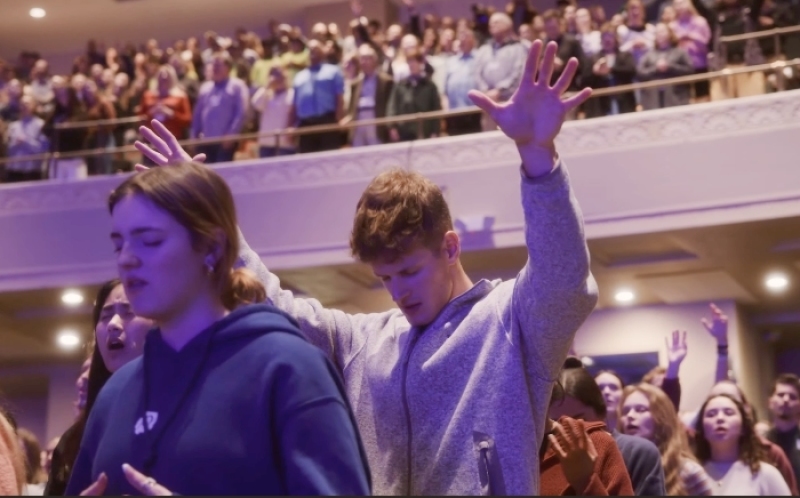
A new survey reveals that Americans are far more likely than Canadians to say that religion plays a significant role in their daily lives.
The findings, released Wednesday in a joint report by the non-partisan think tanks Cardus and the Angus Reid Institute, draw on responses from 5,001 Americans and 5,001 Canadians gathered in March. The data confirm that Americans remain markedly more religious than Canadians overall.
One key indicator showed that 33% of Americans “strongly agree” that religion is “very important” in their “day-to-day life,” while only 17% of Canadians said the same. In contrast, 45% of Canadians “strongly disagree” that religion holds day-to-day importance, compared to 26% of Americans.
The report also identified major differences in spiritual identity. A plurality of Canadians (44%) were categorized as “spiritually uncertain,” are classified as “spiritually uncertain,” a category defined by factors such as belief in a higher power or life after death, the importance they place on parents teaching religious beliefs, and how often they pray, read sacred texts, experience God’s presence, or attend religious services.
Canadian respondents also split evenly between “non-believers” (19%) and the “privately faithful” (19%). In comparison, 37% of Americans were classified as “religiously committed,” far outpacing the 18% of Canadians who fell into the same category. Another 27% of Americans were either “privately faithful” or “spiritually uncertain,” and only 10% identified as “non-believers.”
Attendance patterns further reveal the divide. While majorities of Canadians (72%) and Americans (56%) report they “never” or “only rarely” attend religious services, weekly attendance is far more common among Americans (27%) than Canadians (13%). Similarly, 30% of Americans read the Bible, Quran, or other sacred texts at least weekly, compared to just 13% of Canadians.
Eighty-one percent of Americans and 65% of Canadians affirm belief in a higher power, while 77% of Americans and 51% of Canadians believe in life after death. Additionally, 49% of Americans and 40% of Canadians agree that “All of the great religions of the world are equally good and true.”
Questions about experiencing God’s presence revealed striking contrasts: 32% of Americans say they sense God’s presence daily, whereas 44% of Canadians say they never feel His presence. By comparison, 17% of Americans feel God’s presence daily, and 23% say they never feel it.
Americans also appear more comfortable expressing their faith openly. Sixty-nine percent say, “I’m public about my religion and faith and don’t mind other people knowing I’m a believer,” compared to 56% of Canadians.
When considering the role of religion in public life, the two nations diverge sharply. A majority of Americans (56%) believe “Americans who hold public positions should feel free to speak and act based on their religious beliefs,” while 44% prefer to keep “God and religion completely out of public life.” Meanwhile, 66% of Canadians support excluding religion from public life, with just 34% saying politicians should be free to “speak and act based on their religious beliefs.”
Despite Americans reporting stronger religious belief overall, the research suggests that Canada’s religiously committed population is more active in community service. Fifty-five percent of religiously committed Canadians volunteer for a group or cause, compared to 51% of their American counterparts.
Charitable giving is also widespread, with 82% of religiously committed Canadians and 71% of religiously committed Americans saying they donate money to a charitable organization.


















